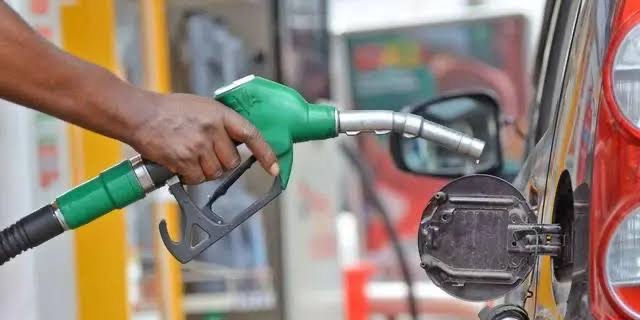Petrol prices in Nigeria could soon drop as international crude oil prices take a significant dip, raising hopes for some relief at the pump for Nigerian consumers.
Brent crude, the global benchmark for oil prices, recently fell to $65 per barrel, down from $69.90.
This decline is attributed in part to the new round of sweeping tariffs announced by U.S. President Donald Trump, which has caused notable shifts in global markets.
Adding to the market dynamics, the Organisation of Petroleum Exporting Countries (OPEC) and its allies have opted to boost production significantly.
Beginning in May 2025, the group will increase oil output by 410,000 barrels per day—far exceeding the earlier planned rise of 135,000 barrels daily.
These developments are reshaping the oil market and influencing the pricing of petroleum products worldwide.
Depot prices reflect a decline
As global oil prices drop, Nigerian depots are adjusting their rates downward. Major fuel suppliers such as Mainland, A.Y.M, and Ever now sell at ₦918 per litre, down from ₦920.
Other marketers like Prudent, Eterna, and Soroman have also cut prices to ₦912, ₦897, and ₦915 per litre, respectively—each reflecting a slight reduction.
Data from petroleumprice.ng suggests that filling stations are likely to reduce pump prices as they restock, provided current trends continue.
This could result in lower fuel costs for consumers in the near future.
Speaking to Sunday Vanguard, Billy Gillis-Harry, President of the Petroleum Products Retail Outlets Owners Association of Nigeria (PETROAN), expressed optimism about the potential economic benefits.
He noted that sustained price drops could lead to reduced transportation costs and lower prices for goods and services, offering some economic relief to Nigerians.
OPEC sticks with flexible output strategy
In a recent virtual meeting held on April 3, 2025, eight OPEC+ member countries—including Saudi Arabia, Russia, and the UAE—reviewed the state of the oil market and confirmed plans to gradually roll back previous production cuts.
They agreed to a phased increase of 411,000 barrels per day in May, encompassing three increments, including the one initially scheduled for that month.
OPEC emphasized that this strategy remains flexible and could be halted or reversed depending on how market conditions evolve.
The countries reiterated their pledge to adhere to the voluntary cuts agreed upon during the December 2024 and March 2025 meetings.
They also committed to submitting revised compensation plans for any overproduction since January 2024 to the OPEC Secretariat by April 15, 2025.
With these factors in play, Nigerians may soon see the ripple effects in the form of reduced petrol prices, potentially easing the cost of living and transportation across the country.


